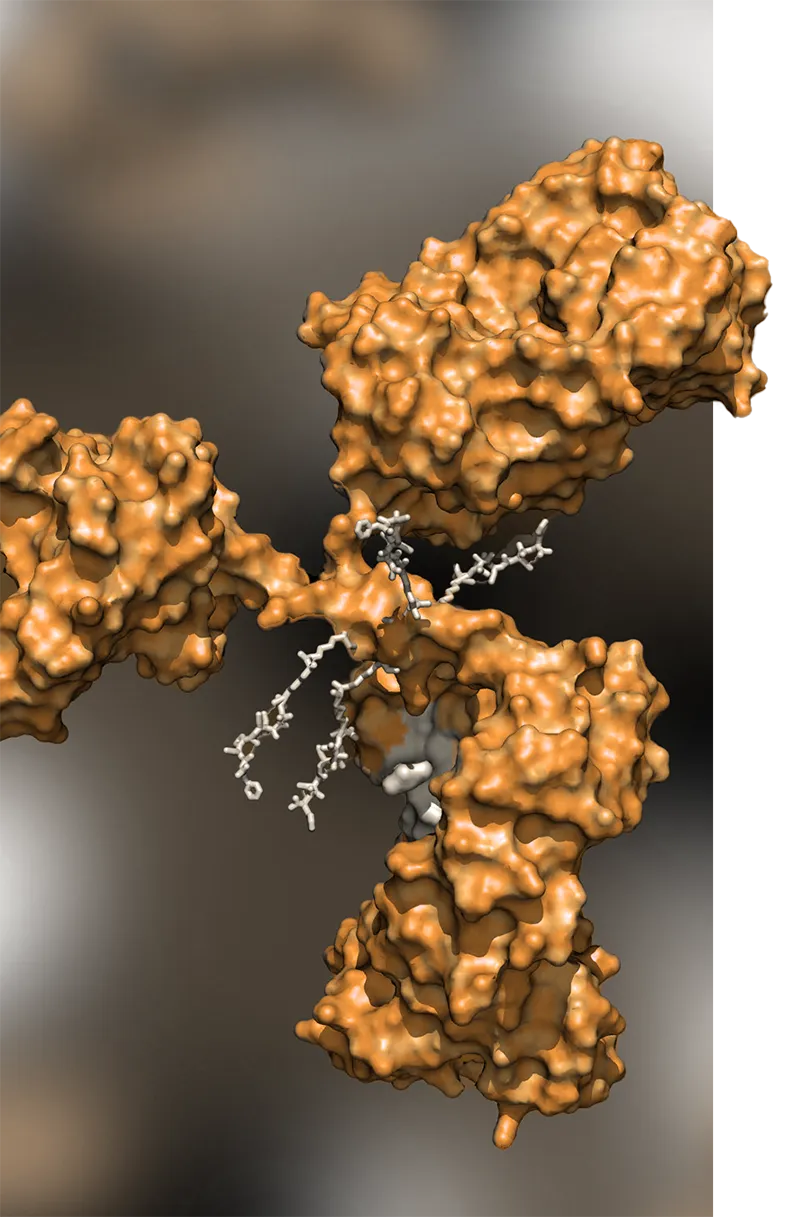Learn about MBRC-101 antibody drug conjugate development and ways patients may qualify to participate in our clinical trial.



This is a first-in-human, open-label, Phase 1/2 study in patients with advanced metastatic solid tumors refractory to standard treatment, including non-small cell lung cancer (NSCLC) and breast cancer.
Phase 1 has been completed.
Phase 1b is evaluating the safety and preliminary activity of MBRC-101 at clinically relevant doses in breast cancer, NSCLC and other solid tumors.
Phase 2 will focus on specific tumor types identified during Phase 1/1b.
For more information about the MBRC-101-001 clinical trial, and to review patient eligibility criteria, visit clinicaltrials.gov (identifier: NCT06014658).

EphA5 has been selected as an ADC target because of its high expression in various solid tumors, including lung, head and neck, gastric, colon, pancreatic, bladder, ovary, and breast cancers. EphA5 is differentially expressed (i.e., found more often) in tumor cells compared to normal cells.
Pre-clinical data has shown the ability of EphA5 to bind antibody and to internalize the antibody with its conjugate drug into the cancer cell. Robust pre-clinical efficacy in vivo, using patient-derived tumor xenograft (PDX) models, has been documented (download data below for more details).
For more information about MBrace’s products or programs please contact us at: